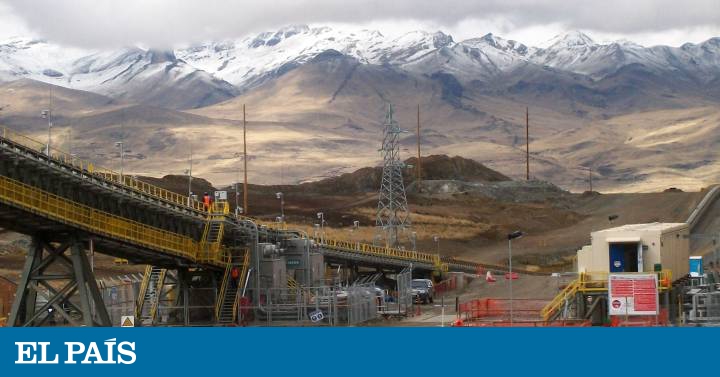The permanent interconnection of a globalized world has these things. Latin America is the only region in the world that has not registered a single case of coronavirus and yet has two of its major economies in check due to the outbreak: Chile and Peru. The conductive thread is copper, a basic mineral in many industrial processes and of which they are, by far, the two largest producers on the planet. 40% of the world supply of this raw material comes from both countries, which fear a setback for their economies if the outbreak continues to make a dent in the Chinese economy. Analysts also point to the largest economy in the region, Brazil, as one of the potential affected by the virus - mainly due to lower sales of iron ore - while the second in discord, Mexico, would be virtually unscathed. The estimated impact on the entire Latin American bloc, however, will be "small" and "modest," according to Goldman Sachs, as long as the reverse on the Chinese economy does not go much further than expected: the final impact of the health crisis about GDP is still unknown.
MORE INFORMATION
“Chile needs a public sector capable of generating a new development policy”- Chile or the eternal dependence on copper
- Chile bets on green copper
The New York investment bank is not the only financial institution that has warned in recent days of the impact on that bouquet of Latin American economies. Citi also places the trio formed by Chile, Peru and Brazil, along with Ecuador, as the most vulnerable countries taking into account four variables: economic growth, supply chains, raw materials and volatility risks in its foreign market. Mexico, again, is off the map of countries at greater risk, beyond the damage that the virus could do to the world economy.
Chile and Peru share a border of almost 170 kilometers and a common dependence: copper and, to a lesser extent, silver. The first represents 28% of the offer and Peru, 12%. And both resent especially the recent fall in the price of this mineral, which in little more than a month has left 10% despite levels already low. The economic dependence of both countries is brutal, with one tenth of their GDP dependent on mining.
"With a small and open economy, and being an active exporter of raw materials [and, above all, copper] to China, Chile's conditions make it particularly vulnerable to the impact of the coronavirus," says Felipe Hernández of Bloomberg. In addition, to this risk are added other factors that were already hitting the Chilean economy in 2020. Reduced by protests at the end of last year - that business bankruptcies have shot 22% and that many analysts believe they can be repeated in the coming months—, GDP is also affected by the uncertainty surrounding the process of reforming the Constitution.
The doubts derived from the virus have also put the focus on the state copper company, Codelco. Cedric Rimaud, an analyst at Gimme Credit, for example, has recently recommended investors "cautious" with Chilean company bonds until the final impact of the virus on the Chinese economy is known. The Chilean Copper Commission (Cochilco) has admitted this week that sales will suffer, but the Government emphasizes that it will be a "passing effect" for the national economy. According to Goldman Sachs' calculations, a 10% fall in the price of raw materials - especially copper - would cut Chilean GDP by 1.2% and Peru's 1%. The effect on Brazil would be remarkably less: 0.5%, mostly due to lower iron prices.
According to the latest monthly survey of Bank of America Merrill Lynch, 56% of fund managers see the slowdown in growth and demand for raw materials by China as the greatest risk for all of Latin America. And 27% of respondents, which total 103,000 million dollars under their management, believe that the economic situation in Chile will deteriorate in the next six months, 20% more than a month ago. Protests are no longer the only anxiety factor for the fifth largest economy in the region.

